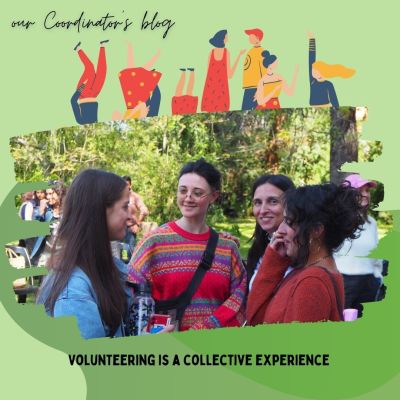Article by Markus Stiefelbauer
Voluntourism (the combination of volunteering and tourism) is an amazing experience. Having all the advantages of being a tourist combined with doing something good, makes it without a doubt a very fulfilling and valuable experience for the volunteers. Still, the question remains: How can volunteers really make an impact?
Most of us want to change the world at least a little tiny bit. Even more so when working as a volunteer, offering time, knowledge and dedication. But what does “making an impact” mean? Is it about changing the world? Is it about seeing a progression? Something the project coordinators would tell future volunteers about even 2 years later? Or is it the complete opposite? Due to the limited time of most voluntourists is it impossible to make an impact, so are they one piece of a puzzle helping to have impact in the long run, when they have already gone?
Tooka is working in the medical center for 2 months. She helps the doctor to check up on babies and toddlers. If Tooka is not there, the doctor does everything on his own. Hence she can help, but does that mean that she is making an impact? Laura is working in the Soup Kitchen. She cooks lunch for the local community. If she is there, food can be served earlier than when she is not. Is she creating an impact? What about Markus? He works in the communications team, maintaining all social media channels, writing blog articles and making videos. Does that kind of work really make a difference?
Let`s tell the stories again: Tooka is working in the medical center for 2 months. She does the check-ups, so the doctor can concentrate on his/her expert skills and treat every single patient better, especially due to the huge amount of patients needing help every single day. It is a very valuable work, but exhausting as well - for Tooka and the doctor. Since they get along really well with one another, the doctor enjoys his time at work more than being alone. This, in turn, provides him with the necessary integrity and tactfulness he needs to deal with difficult patients, which is quite common since many patients come from difficult backgrounds.
Laura is working in the Soup Kitchen. But Laura is not alone, she came here with her friends Grace and Laura. The 3 girls have known each other for years, which is easy to see. They have fun and laugh while getting on with their work. Grace speaks only a little bit of Spanish, so Laura usually translates, what Estella, the coordinator, is saying. On the other hand Estella always feels proud when she is able to express something in English, and so she has lots of conversations with Laura, enriching her cultural knowledge and experience. Of course, all the community people recognize the great vibes and that the meals are prepared with love.
Markus is working in the communications department. He is going out to the projects, doing interviews and making videos following the motto “Do good and talk about it”. Local people are always curious about the videos. On one hand, many of them are a little bit camera-shy. On the other hand, they are delighted to talk about their projects, about all their difficulties and achievements. They are delighted that people are interested in them and that people care about them. And delighted that hopefully many people will take notice of their respective projects. Because they face many obstacles, and the more people help, whether as a volunteer or with financial aid, the stronger their belief in a better future - especially for the babies, the toddlers, the kids - the future!
It is this perspective that makes the difference. The perception of the volunteer makes the difference. The impact is not a crater in the landscape, it`s a tiny little change in peoples’ lives. The crater might have vanished tomorrow, but the memory in people`s hearts persist. Isn`t that changing the world a little tiny bit?




